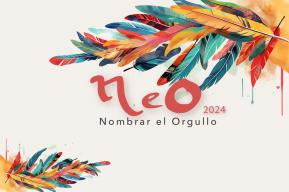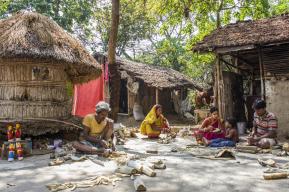Project
Sustainable Water Security for Human Settlements in Developing Countries under Climate Change

Location: Bhutan, Gabon, Kenya, and Zambia
Dates of implementation: 11 countries in Africa and Asia have been engaged since 2017. Then, 9 countries will be joined by the end of the project. Every year, 2 countries will be implemented by UNESCO.
Donor: The Republic of Korea
Project creation
The UN General Assembly declared access to clean water and sanitation a human right in July 2010, but lack of access to drinking water of adequate quality and quantity remains one of the largest human health problems globally. The Sustainable Development Goals (SDGs) targets aim for universal access to drinking water, sanitation and hygiene with target 6.1, “by 2030, achieve universal and equitable access to safe and affordable drinking water for all”.
More than one third of countries are not on track to achieve universal household access to 'improved' drinking water sources by 2030.
Ordinary diarrhoea remains the major killer among water-, sanitation- and hygiene-related diseases, contributing to 43% of deaths. Sub-Saharan Africa and South Asia are the most affected regions.
Freshwater is essential for human health, prosperity and security. It is key for poverty eradication, food security, and the preservation of ecosystems. Yet, billions of people worldwide are confronted with serious freshwater challenges, from water scarcity, poor quality, lack of sanitation facilities, to water-related disasters such as floods and droughts.
Together, these regions are expected to account for half of world population in 2100. Water resources are under increasingly severe pressure from population growth, climate change and other global drivers. At the same time, floods or droughts are rising both in frequency and intensity causing developmental drawbacks, especially in developing States. Six to eight million human beings succumb each year to water‐related disasters and diseases.
Given these challenges, there is a need to establish a water secure and future, especially in developing countries in Africa and Asia. Developing Member States often lack appropriate policy environment, strategies, operational plans and staff to adequately address their needs. Gaps need to be identified, and the human resources capacity of developing countries needs to be strengthened, as well as the policy options and instruments that will secure them water wise in the future.
UNESCO's role to the project
The main role of UNESCO is overall project management including call for the application, review and selection of application, communication with donor, delegations of Member States, regional offices and national offices through global water networks.
UNESCO is the only UN Organization that has place water security in the heart of its water programme. The project which was initially aligned Intergovernmental Hydrological Programme (IHP) VIII Phase (2014-2021) is now aligned to IHP-IX Phase (2022-2029) on science for a water secure world in a changing environment and the 41C5. Specifically, the project is supporting Outputs 1.1, 1.4, 1.7, 1.8, 2.5, 2.6, 4.1, 4.2, 4.3, 4.4, 4.5, 4.8, 4.9, 5.2, 5.3, 5.4, 5.5 of the IHP-IX strategic plan. The project is contributing to the 41C5 under the output on water: 3.SC1, 3.SC2. Furthermore, the project is also aligned with the National Plan related to SDGs and Water and responds to their expressed request through the UN SDG 6 Global Acceleration Framework.
Project's importance for society
It is envisaged that the project will contribute to water security of all men and women in a given country indirectly by the proposal of a list of engineering works (operational plan). The implementation of such infrastructure will benefit not only the current generations but future ones. People will be able to have access to clean safe water for the lifetime of the new / improved network, or be safe from the effects of floods or droughts for the lifetime of the levies or new smart water systems.
Main achievements
Within the framework of the Korean Funds in Trust (KFIT) extrabudgetary project, project activities were implemented in four countries: three in Africa (Gabon, Kenya, Zambia) and one in Asia (Bhutan). A study on “the availability and use of raw water at the Ntoum plant in the face of climate change” in Gabon was completed. Activities to support Kenya and Zambia in groundwater management and Bhutan in surface water quality monitoring are ongoing. Activities and studies for seven more Member States in Africa and Asia (Madagascar, Tanzania, Gambia, Nigeria, Vietnam, Timor-Leste, Uzbekistan) are in the preparatory stage.
The project serves Member States in their efforts to implement SDG 6 and other related targets such as 9.a, 11.5, 13.1 and 13.3. It is envisaged that the project contributes to water security of all men and women in a given country. People will be able to have access to clean safe water for the lifetime of the new / improved network, or be safe from the effects of floods or droughts for the lifetime of the levies or new smart water systems. The project will entail practical and engineering approaches, reflecting best practices from developed countries that are appropriate for developing countries.
Expected results
The expected impact is to enhance the Member State’s resilience of water security under climate change. The results framework of the project includes strengthening human resources capacity for experts, sensitized decision makers and funding agencies. Additionally, it seeks to develop methodology, roadmap or guideline which can be undertaken to support the country’s water security.
Contact
Division of Water Sciences (SC/HYD); Groundwater Sustainability and Water Cooperation (GSW)
Division of Water Sciences (SC/HYD); Groundwater Sustainability and Water Cooperation (GSW)
Division of Water Sciences (SC/HYD); Groundwater Sustainability and Water Cooperation (GSW)









